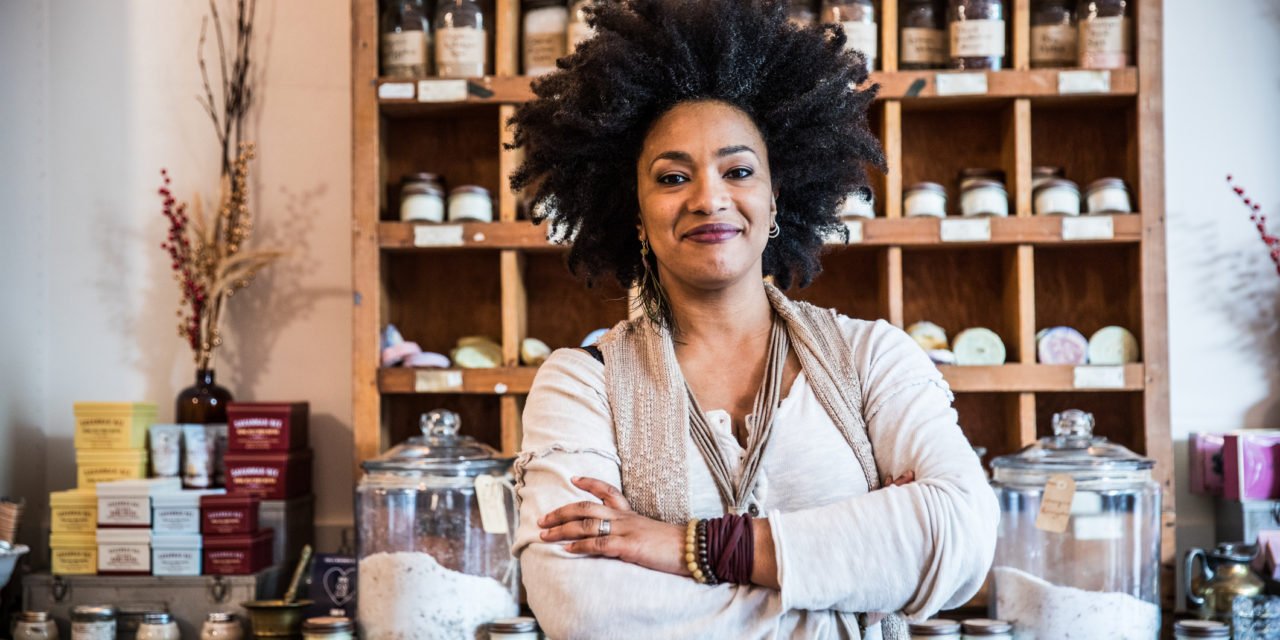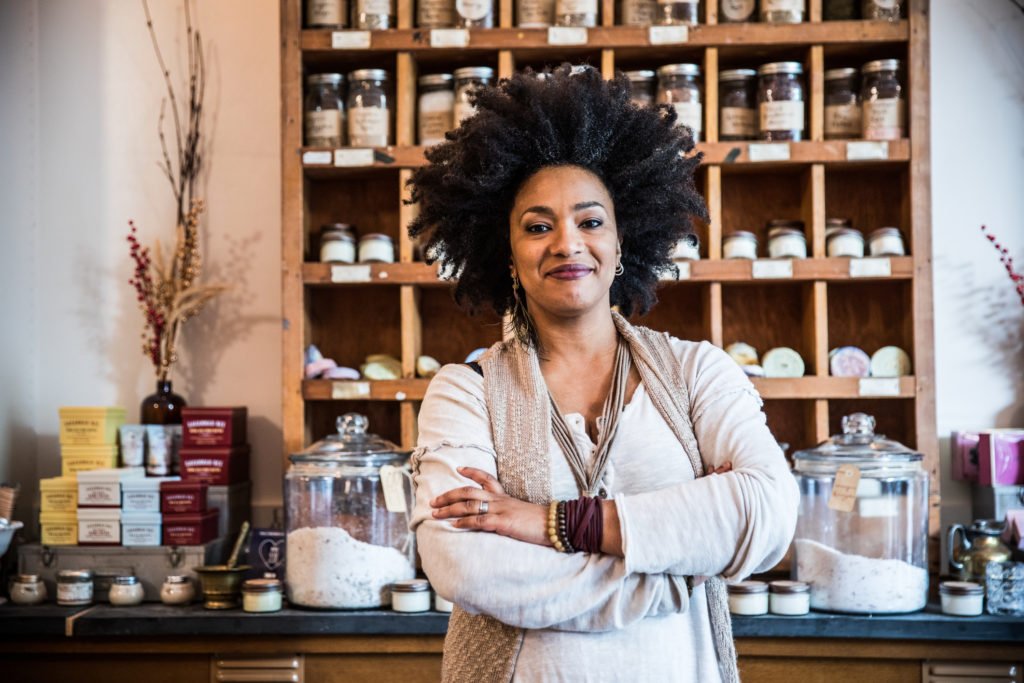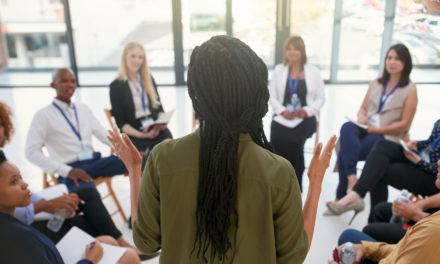With the December holiday season upon us, it’s time for reconnecting with friends, family, and all of our loved ones, be it virtually or in person. It’s also a time to take stock of where we’ve been, where we are, and where we want to go next as the pandemic continues to roil on.
For a few people, these past couple of years have been a time of abundance that unfortunately highlights our society’s disparities: According to a recent study from Oxford Economics, Americans saved around $3.7 trillion due to stimulus checks, stock market gains, and generally spending less money due to the shopping limitations of the pandemic. Tellingly, a whopping 70% of those savings went to the wealthiest 20%. Given that the wealth gap between the most affluent families and middle- and lower-income families has grown sharply these past two decades, according to a trends report by Pew Research Center, this should come as no surprise. Upper-income families wield 7.4 times the wealth of middle-income families and 75 times that of lower-income families. In this case, wealth is defined as the net worth of assets owned by a family (so such things as a home and savings account – minus any outstanding debt.)
For marginalized folks starting at a disadvantage, this disparate accumulation of wealth has resulted in the net worth of the average white family being 10 times that of the average Black family ($171,000 vs. $17,150 in 2016, according to Brookings). While many see these inequities as a natural extension of a scarcity-focused system that thrived on enslaving people so that a few could profit, there are also many economists out there who are looking to reimagine another way to create wealth.
Enter the age-old idea of cooperative economics, which is tied to the “Ujamaa” principle of Kwanzaa. As Jessica Gordon Nembhard, Ph.D., author of Collective Courage: A History of African American Cooperative Economic Thought and Practice, explained on the Black History Year podcast, cooperative economics is about creating values-based, people-centered businesses that are owned, run, and served by members. “It’s created to satisfy a need rather than to satisfy profit maximization,” she says.
The age-old idea of cooperative economics is tied to the 'Ujamaa' principle of Kwanzaa. Cooperative economics is about creating values-based, people-centered businesses that are owned, run, and served by members. Share on XExamples of this might include going in on a home purchase or starting a business with trusted family members or friends. In this model, members pool their resources — be it monetary assets or sweat equity — in order to help each other become richer and accomplish more than would be possible on their own. This can translate into significant wealth that snowballs as time passes. For instance, people that keep a piece of real estate in their family can help future generations by creating deals that allow for younger family members to purchase the home without having to front a down payment, which is often the greatest barrier to home ownership for marginalized groups, according to the U.S. Department of Housing and Urban Development.
But what about folks who don’t have anyone they trust enough to share the responsibility of investing large sums of money over long periods of time? As a dear colleague wisely pointed out, the co-op sounds wonderful in theory, but may still be out of reach for some. In that case, supporting BIPOC-owned businesses also plays a role in leveling the playing field so that people from marginalized groups as a whole can come to the table from a position of abundance and economic strength, upending the status quo. “That’s why I do believe in sort of buying Black in terms of predominantly Black-owned, Black- and Brown-owned businesses, because I think we first have to get ourselves established and strong enough to then be integrated properly into the rest of the economy because we are starting with such deficit, with such marginalization, with such oppression, and such hierarchies,” notes Gordon Nembhard on Black History Year. “You can’t address that if we can’t come from a place of strength first.”
To that end, here are five BIPOC-owned businesses affiliated with The Winters Group to consider for your gift giving. For more ideas, check out this week’s The Buzz — and get a head start on holiday shopping with intent!
- Krys Creates: Featuring artwork by Krystle Nicholas, this online shop includes best sellers such as the pop-art inspired Vision Series Mini Print Set ($20) as well as original paintings embodying “Grace” ($100) and the new Inner Peace Giclée Art Print ($18). Commission work may also be requested.
- Liberated Love Notes™ by Brittany Janay: Billed as “Critical Self-Reflections & Affirmations for the Culture,” this deck of 54 cards ($35, with the option to purchase a deck for donation to the community – another example of cooperative economics!) encompasses multiple activities with three instruction cards, 12 glossary cards, four self-reflection and group discussion cards, 32 Liberated Love Notes™, and three blank cards for creating your own love note. Sample messages include uplifting reminders such as, “I am human. I am not a tool for production. Grinding is not a badge of honor, and I will not allow ‘the hustle’ to burn me out. I am human.”
Liberated Love Notes™ by Brittany Janay: Billed as 'Critical Self-Reflections & Affirmations for the Culture,' this deck of 54 cards encompasses multiple activities with 32 Liberated Love Notes™. Share on X
- Live InclusivelyⓇ by The Winters Group, Inc.: Our newly revamped online shop makes it easier to be the change by surrounding yourself and loved ones with inspiring messaging. From our comfy Rest Is Resistance T-Shirt ($22) to our inclusive Unity Digital Print ($10), we’ve got you and even your walls covered with purpose. A portion of the proceeds go toward Live InclusivelyⓇ Actualized, The Winters Group’s corporate social responsibility arm.
- Torchbearer for EquALLity T-shirt: Show you value equity for all with this bold T-shirt from The Valbrun Consulting Group, available in either black or white ($25). Profits from all sales through January 1, 2022, will benefit Live InclusivelyⓇ Actualized, which supports the breaking down of systemic barriers through programs and grantmaking to promote inclusion, equity, and justice.




















